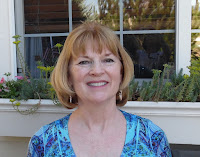Dear
Annie:
My
critique partners sometimes tell me that they want to know more about this or
that element in my story. Isn’t that a good thing? Don’t I want the reader to
have questions to keep them turning the pages?
Signed,
Scratching
Their Heads
Dear
Scratching:
If
the questions you raise keep the reader intrigued, you are correct; they do
keep him reading. If those questions are not answered or at least developed
soon enough, you risk losing the reader. Let’s examine one famous book, To
Kill a Mockingbird.
It
opens: “When he was nearly thirteen, my brother Jem got his arm badly broken at
the elbow. When it healed, and Jem’s fears of never being able to play football
were assuaged, he was seldom self-conscious about his injury.”
Already,
I’m asking myself why this narrator, a young girl, would open her story by
telling about her brother. Their relationship seems unusually close. Why? This
will be revealed as we move on, but in the meantime the question keeps me
reading.
At
the end of the next paragraph, the young girl says that she and Jem discussed
what had been a precipitating cause for the accident: “He said it began the
summer Dill came to us, when Dill first gave us the idea of making Boo Radley
come out.”
Who
is Boo? I ask. What a strange name. My curiosity is peaked. Now, if the
character (Scout) had not explained how the arm had been broken and left it
hanging (bad image), I wouldn’t want to read on as I wouldn’t trust the
narrator to tell the story well.
While
certain major plot questions may not be fully answered until nearer the end of
your book, there must be continual progress in the direction of that
resolution.
~ Annie
~ Annie
Dear Annie:
What
is a better way to find a new subject for my novel? I’ve tried some of the
suggested techniques, but I’m still not satisfied with my results.
Signed,
Blocked in Texas
Dear Blocked:
Carl
Jung said, “The creative mind plays with the objects it loves.” You are
experiencing a common problem—one that keeps writers awake at night. My best
advice is this: Ponder the subjects that most impassion you. Are they truth and
justice? Or political corruption? Maybe Medicare fraud?
Once
you select your topic, you have the foundation for a theme, an important
element to any significant book. (See my archived PPW article on theme) Now
invent a story line which will form the conduit to relay that message. Begin
with a strong opening which subtly implies your chosen theme and go from there.
Not as simple as it sounds, but you’ll have a solid start to a meaningful work.
~ Annie
Dear Annie:
I
have a story idea in mind, but I can’t decide on a setting. They say to write
about that which you know. Is that how I should make my decision? I’ve lived in
only two boring locations.
Or
should I travel to another more interesting setting like Italy and do research?
After all, I could write it off.
Tempted to Travel
Dear Tempted:
I see your point. However, I suggest you choose a setting appropriate to your theme. The setting should set the proper mood for the story you are about to tell.
In
my first novel set in Colorado Springs, a young girl is madly in love but is
forbidden to date her high school sweetheart. She is devastated but later
learns that her mother was right; her intended proves to be a clod. The social
milieu shapes the values of the people who live there. Fortunately for this
girl, her mother’s conservative values save her from a dubious fate and send
her on a personal journey that will lead to a suitable mate and career.
The
setting of the English countryside where Elizabeth Bennet resides explains the
excitement and anticipation she and her sisters feel when they learn of a new
tenant of a nearby estate—one capable of introducing some society into their
small town. The Nineteenth Century timeframe explains the girls’ motivations to
find husbands, perhaps at one of these social gatherings. Jane’s unwillingness
to settle for many proposals she receives defines her character and makes her
final decision to marry Darcy all the more glorious.
The
deep south of the United States during the 1930s is the appropriate setting for
Harper Lee’s To Kill a Mockingbird. There she explores the tension of
racial issues. And yes, she grew up there, so she is qualified to tell the
story. On the other hand, an author with enough research can choose any setting
and tell the story well if the idea motivates him or her enough.
~ Annie
Have a question for me? Write to me at annshill@q.com with your suggestions. I will answer serious questions, and maybe some funny ones, to the best of my ability. Your writing is of utmost importance to me because it is important to you.
Looking forward to hearing from you,
~ Ms. Annie
About the Author: Dear Annie is the pseudonym for Ann S. Hill. After hearing the call to write in her thirties, Ann set the ambition aside while life happened. Now that she has retired from her career as a dentist and her children are adults, she is seriously attacking that parked ambition. She spends significant time on her true passion and has recently completed her second novel. Her first novel, Wait for Me, was a finalist in the Zebulon, Pikes Peak Writers Contest. She has written several short stories. In the meantime, she remains a voracious reader and film aficionado.



No comments:
Post a Comment
Note: Only a member of this blog may post a comment.